#Locus Magazine
Text
Podcasting “Capitalists Hate Capitalism”
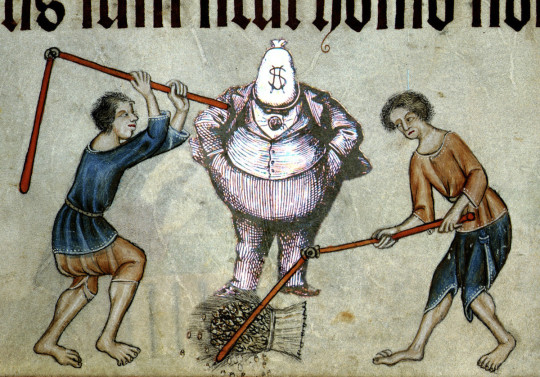
I'm touring my new, nationally bestselling novel The Bezzle! Catch me in Torino (Apr 21) Marin County (Apr 27), Winnipeg (May 2), Calgary (May 3), Vancouver (May 4), and beyond!

This week on my podcast, I read "Capitalists Hate Capitalism," my latest column for Locus Magazine:
https://locusmag.com/2024/03/cory-doctorow-capitalists-hate-capitalism/
What do I mean by "capitalists hate capitalism?" It all comes down to the difference between "profits" and "rents." A capitalist takes capital (money, or the things you can buy with it) and combines it with employees' labor, and generates profits (the capitalist's share) and wages (the workers' share).
Rents, meanwhile, come from owning an asset that capitalists need to generate profits. For example, a landlord who rents a storefront to a coffee shop extracts rent from the capitalist who owns the coffee shop. Meanwhile, the capitalist who owns the cafe extracts profits from the baristas' labor.
Capitalists' founding philosophers like Adam Smith hated rents. Worse: rents were the most important source of income at the time of capitalism's founding. Feudal lords owned great swathes of land, and there were armies of serfs who were bound to that land – it was illegal for them to leave it. The serfs owed rent to lords, and so they worked the land in order grow crops and raise livestock that they handed over the to lord as rent for the land they weren't allowed to leave.
Capitalists, meanwhile, wanted to turn that land into grazing territory for sheep as a source of wool for the "dark, Satanic mills" of the industrial revolution. They wanted the serfs to be kicked off their land so that they would become "free labor" that could be hired to work in those factories.
For the founders of capitalism, a "free market" wasn't free from regulation, it was free from rents, and "free labor" came from workers who were free to leave the estates where they were born – but also free to starve unless they took a job with the capitalists.
For capitalism's philosophers, free markets and free labor weren't just a source of profits, they were also a source of virtue. Capitalists – unlike lords – had to worry about competition from one another. They had to make better goods at lower prices, lest their customers take their business elsewhere; and they had to offer higher pay and better conditions, lest their "free labor" take a job elsewhere.
This means that capitalists are haunted by the fear of losing everything, and that fear acts as a goad, driving them to find ways to make everything better for everyone: better, cheaper products that benefit shoppers; and better-paid, safer jobs that benefit workers. For Smith, capitalism is alchemy, a philosopher's stone that transforms the base metal of greed into the gold of public spiritedness.
By contrast, rentiers are insulated from competition. Their workers are bound to the land, and must toil to pay the rent no matter whether they are treated well or abused. The rent rolls in reliably, without the lord having to invest in new, better ways to bring in the harvest. It's a good life (for the lord).
Think of that coffee-shop again: if a better cafe opens across the street, the owner can lose it all, as their customers and workers switch allegiance. But for the landlord, the failure of his capitalist tenant is a feature, not a bug. Once the cafe goes bust, the landlord gets a newly vacant storefront on the same block as the hot new coffee shop that can be rented out at even higher rates to another capitalist who tries his luck.
The industrial revolution wasn't just the triumph of automation over craft processes, nor the triumph of factory owners over weavers. It was also the triumph of profits over rents. The transformation of hereditary estates worked by serfs into part of the supply chain for textile mills was attended by – and contributed to – the political ascendancy of capitalists over rentiers.
Now, obviously, capitalism didn't end rents – just as feudalism didn't require the total absence of profits. Under feudalism, capitalists still extracted profits from capital and labor; and under capitalism, rentiers still extracted rents from assets that capitalists and workers paid them to use.
The difference comes in the way that conflicts between profits and rents were resolved. Feudalism is a system where rents triumph over profits, and capitalism is a system where profits triumph over rents.
It's conflict that tells you what really matters. You love your family, but they drive you crazy. If you side with your family over your friends – even when your friends might be right and your family's probably wrong – then you value your family more than your friends. That doesn't mean you don't value your friends – it means that you value them less than your family.
Conflict is a reliable way to know whether or not you're a leftist. As Steven Brust says, the way to distinguish a leftist is to ask "What's more important, human rights, or property rights?" If you answer "Property rights are human right," you're not a leftist. Leftists don't necessarily oppose all property rights – they just think they're less important than human rights.
Think of conflicts between property rights and human rights: the grocer who deliberately renders leftover food inedible before putting it in the dumpster to ensure that hungry people can't eat it, or the landlord who keeps an apartment empty while a homeless person freezes to death on its doorstep. You don't have to say "No one can own food or a home" to say, "in these cases, property rights are interfering with human rights, so they should be overridden." For leftists property rights can be a means to human rights (like revolutionary land reformers who give peasants title to the lands they work), but where property rights interfere with human rights, they are set aside.
In his 2023 book Technofeudalism, Yanis Varoufakis claims that capitalism has given way to a new feudalism – that capitalism was a transitional phase between feudalism…and feudalism:
https://pluralistic.net/2023/09/28/cloudalists/#cloud-capital
Varoufakis's point isn't that capitalists have gone extinct. Rather, it's that today, conflicts between capital and assets – between rents and profits – reliably end with a victory of rent over profit.
Think of Amazon: the "everything store" appears to be a vast bazaar, a flea-market whose stalls are all operated by independent capitalists who decide what to sell, how to price it, and then compete to tempt shoppers. In reality, though, the whole system is owned by a single feudalist, who extracts 51% from every dollar those merchants take in, and decides who can sell, and what they can sell, and at what price, and whether anyone can even see it:
https://pluralistic.net/2024/03/01/managerial-discretion/#junk-fees
Or consider the patent trolls of the Eastern District of Texas. These "companies" are invisible and produce nothing. They consist solely of a serviced mailbox in a dusty, uninhabited office-building, and an overbroad patent (say, a patent on "tapping on a screen with your finger") issued by the US Patent and Trademark Office. These companies extract hundreds of millions of dollars from Apple, Google, Samsung for violating these patents. In other words, the government steps in and takes vast profits generated through productive activity by companies that make phones, and turns that money over as rent paid to unproductive companies whose sole "product" is lawsuits. It's the triumph of rent over profit.
Capitalists hate capitalism. All capitalists would rather extract rents than profits, because rents are insulated from competition. The merchants who sell on Jeff Bezos's Amazon (or open a cafe in a landlord's storefront, or license a foolish smartphone patent) bear all the risk. The landlords – of Amazon, the storefront, or the patent – get paid whether or not that risk pays off.
This is why Google, Apple and Samsung also have vast digital estates that they rent out to capitalists – everything from app stores to patent portfolios. They would much rather be in the business of renting things out to capitalists than competing with capitalists.
Hence that famous Adam Smith quote: "People of the same trade seldom meet together, even for merriment and diversion, but the conversation ends in a conspiracy against the public, or in some contrivance to raise prices." This is literally what Google and Meta do:
https://en.wikipedia.org/wiki/Jedi_Blue
And it's what Apple and Google do:
https://www.theverge.com/2023/10/27/23934961/google-antitrust-trial-defaults-search-deal-26-3-billion
Why compete with one another when you can collude, like feudal lords with adjacent estates who trust one another to return any serf they catch trying to sneak away in the dead of night?
Because of course, it's not just "free markets" that have been captured by rents ("Competition is for losers" -P. Thiel) – it's also "free labor." For years, the largest tech and entertainment companies in America illegally colluded on a "no poach" agreement not to hire one-anothers' employees:
https://techcrunch.com/2015/09/03/apple-google-other-silicon-valley-tech-giants-ordered-to-pay-415m-in-no-poaching-suit/
These companies were bitter competitors – as were these sectors. Even as Big Content was lobbying for farcical copyright law expansions and vowing to capture Big Tech, all these companies on both sides were able to set aside their differences and collude to bind their free workers to their estates and end the "wasteful competition" to secure their labor.
Of course, this is even more pronounced at the bottom of the labor market, where noncompete "agreements" are the norm. The median American worker bound by a noncompete is a fast-food worker whose employer can wield the power of the state to prevent that worker from leaving behind the Wendy's cash-register to make $0.25/hour more at the McDonald's fry trap across the street:
https://pluralistic.net/2022/02/02/its-the-economy-stupid/#neofeudal
Employers defend this as necessary to secure their investment in training their workers and to ensure the integrity of their trade secrets. But why should their investments be protected? Capitalism is about risk, and the fear that accompanies risk – fear that drives capitalists to innovate, which creates the public benefit that is the moral justification for capitalism.
Capitalists hate capitalism. They don't want free labor – they want labor bound to the land. Capitalists benefit from free labor: if you have a better company, you can tempt away the best workers and cause your inferior rival to fail. But feudalists benefit from un-free labor, from tricks like "bondage fees" that force workers to pay in order to quit their jobs:
https://pluralistic.net/2023/04/21/bondage-fees/#doorman-building
Companies like Petsmart use "training repayment agreement provisions" (TRAPs) to keep low-waged workers from leaving for better employers. Petsmart says it costs $5,500 to train a pet-groomer, and if that worker is fired, laid off, or quits less than two years, they have to pay that amount to Petsmart:
https://pluralistic.net/2022/08/04/its-a-trap/#a-little-on-the-nose
Now, Petsmart is full of shit here. The "four-week training course" Petsmart claims is worth $5,500 actually only lasts for three weeks. What's more, the "training" consists of sweeping the floor and doing other low-level chores for three weeks, without pay.
But even if Petsmart were to give $5,500 worth of training to every pet-groomer, this would still be bullshit. Why should the worker bear the risk of Petsmart making a bad investment in their training? Under capitalism, risks justify rewards. Petsmart's argument for charging $50 to groom your dog and paying the groomer $15 for the job is that they took $35 worth of risk. But some of that risk is being borne by the worker – they're the ones footing the bill for the training.
For Petsmart – as for all feudalists – a worker (with all the attendant risks) can be turned into an asset, something that isn't subject to competition. Petsmart doesn't have to retain workers through superior pay and conditions – they can use the state's contract-enforcement mechanism instead.
Capitalists hate capitalism, but they love feudalism. Sure, they dress this up by claiming that governmental de-risking spurs investment: "Who would pay to train a pet-groomer if that worker could walk out the next day and shave dogs for some competing shop?"
But this is obvious nonsense. Think of Silicon Valley: high tech is the most "IP-intensive" of all industries, the sector that has had to compete most fiercely for skilled labor. And yet, Silicon Valley is in California, where noncompetes are illegal. Every single successful Silicon Valley company has thrived in an environment in which their skilled workers can walk out the door at any time and take a job with a rival company.
There's no indication that the risk of free labor prevents investment. Think of AI, the biggest investment bubble in human history. All the major AI companies are in jurisdictions where noncompetes are illegal. Anthropic – OpenAI's most serious competitor – was founded by a sister/brother team who quit senior roles at OpenAI and founded a direct competitor. No one can claim with a straight face that OpenAI is now unable to raise capital on favorable terms.
What's more, when OpenAI founder Sam Altman was forced out by his board, Microsoft offered to hire him – and 700 other OpenAI personnel – to found an OpenAI competitor. When Altman returned to the company, Microsoft invested more money in OpenAI, despite their intimate understanding that anyone could hire away the company's founder and all of its top technical staff at any time.
The idea that the departure of the Burger King trade secrets locked up in its workers' heads constitute more of a risk to the ability to operate a hamburger restaurant than the departure of the entire technical staff of OpenAI is obvious nonsense. Noncompetes aren't a way to make it possible to run a business – they're a way to make it easy to run a business, by eliminating competition and pushing the risk onto employees.
Because capitalists hate capitalism. And who can blame them? Who wouldn't prefer a life with less risk to one where you have to constantly look over your shoulder for competitors who've found a way to make a superior offer to your customers and workers?
This is why businesses are so excited about securing "IP" – that is, a government-backed right to control your workers, customers, competitors or critics:
https://locusmag.com/2020/09/cory-doctorow-ip/
The argument for every IP right expansion is the same: "Who would invest in creating something new without the assurance that someone else wouldn’t copy and improve on it and put them out of business?"
That was the argument raised five years ago, during the (mercifully brief) mania for genre writers seeking trademarks on common tropes. There was the romance writer who got a trademark on the word "cocky" in book titles:
https://www.theverge.com/2018/7/16/17566276/cockygate-amazon-kindle-unlimited-algorithm-self-published-romance-novel-cabal
And the fantasy writer who wanted a trademark on "dragon slayer" in fantasy novel titles:
https://memex.craphound.com/2018/06/14/son-of-cocky-a-writer-is-trying-to-trademark-dragon-slayer-for-fantasy-novels/
Who subsequently sought a trademark on any book cover featuring a person holding a weapon:
https://memex.craphound.com/2018/07/19/trademark-troll-who-claims-to-own-dragon-slayer-now-wants-exclusive-rights-to-book-covers-where-someone-is-holding-a-weapon/
For these would-be rentiers, the logic was the same: "Why would I write a book about a dragon-slayer if I could lose readers to someone else who writes a book about dragon-slayers?"
In these cases, the USPTO denied or rescinded its trademarks. Profits triumphed over rents. But increasingly, rents are triumphing over profits, and rent-extraction is celebrated as "smart business," while profits are for suckers, only slightly preferable to "wages" (the worst way to get paid under both capitalism and feudalism).
That's what's behind all the talk about "passive income" – that's just a euphemism for "rent." It's what Douglas Rushkoff is referring to in Survival of the Richest when he talks about the wealthy wanting to "go meta":
https://pluralistic.net/2022/09/13/collapse-porn/#collapse-porn
Don't drive a cab – go meta and buy a medallion. Don't buy a medallion, go meta and found Uber. Don't found Uber, go meta and invest in Uber. Don't invest in Uber, go meta and buy options on Uber stock. Don't buy Uber stock options, go meta and buy derivatives of options on Uber stock.
"Going meta" means distancing yourself from capitalism – from income derived from profits, from competition, from risk – and cozying up to feudalism.
Capitalists have always hated capitalism. The owners of the dark Satanic mills wanted peasants turned off the land and converted into "free labor" – but they also kidnapped Napoleonic war-orphans and indentured them to ten-year terms of service, which was all you could get out of a child's body before it was ruined for further work:
https://pluralistic.net/2023/09/26/enochs-hammer/#thats-fronkonsteen
When Varoufakis says we've entered a new feudal age, he doesn't mean that we've abolished capitalism. He means that – for the first time in centuries – when rents go to war against profits – the rents almost always emerge victorious.
Here's the podcast episode:
https://craphound.com/news/2024/04/14/capitalists-hate-capitalism/
Here's a direct link to the MP3 (hosting courtesy of the Internet Archive; they'll host your stuff for free, forever):
https://archive.org/download/Cory_Doctorow_Podcast_465/Cory_Doctorow_Podcast_465_-_Capitalists_Hate_Capitalism.mp3
And here's the RSS feed for my podcast:
http://feeds.feedburner.com/doctorow_podcast

If you'd like an essay-formatted version of this post to read or share, here's a link to it on pluralistic.net, my surveillance-free, ad-free, tracker-free blog:
https://pluralistic.net/2024/04/18/in-extremis-veritas/#the-winnah
1K notes
·
View notes
Text

NEIL GAIMAN'S CHIVALRY MAKES LOCUS RECOMMENDED READING LIST FOR 2022
Well, I'm just blown away to be on this list, chosen to be among 20 "Illustrated and Art Books" for 2022.
Several other wonderful graphic novels listed, and and some really amazing art books, but the thing that has me most thrilled is that Kinuko Craft's Vision of Beauty is on that list! Kinuko has been an art heroine of mine for many years and I just adore her. To have something I illustrated side by side with her brings tears to me eyes. I'm so grateful!
Thank you, thank you!
648 notes
·
View notes
Text

You’ve probably come across this (now)online Good Omens Locus Mag interview from 1991.
But here is an actual page from the magazine. The online page describes it as issue #392 but in fact it’s issue #362.

#good omens#crowley#aziraphale#ineffable husbands#neil gaiman#terry pratchett#good omens fun facts#good omens interview#locus magazine
43 notes
·
View notes
Text
Locus magazine have released their 2023 recommended reading list, and there are so many wonderful Gollancz titles there!
Shigidi and the Brass Head of Obalufon, Wole Talabi
The Sinister Booksellers of Bath, Garth Nix
The Blue, Beautiful World, Karen Lord
Hopeland, Ian McDonald
Airside, Christopher Priest
A Fire Born of Exile, Aliette de Bodard
Creation Node, Stephen Baxter







#Locus Magazine#2023 Book Recs#Aliette de Bodard#Stephen Baxter#Christopher Priest#Ian McDonald#Karen Lord#Wole Talabi#Garth Nix#Book recs#science fiction book recs#fantasy book recs
14 notes
·
View notes
Text
Do you like writers being paid for their work? I sure do. And sometimes that means if you have a few dollars to spare, you have to help pay for the art that you love so the artists can eat and whatnot.
For speculative fictions fans, Locus Magazine is a place that I would continue to like to exist so it can pay for people's stories (and maybe one day I'll manage to write and sell a story) and it's near the end of its fundraiser and it is still short of being able to cover costs for the year.
There are a lot of a cool perks available, and SFWA is matching donations until the fundraiser ends on April 5th 2024 if you send them your donation receipt after (info in the indiegogo). Consider checking it out.
It is good to pay writers to write. Thank you for coming to my ted talk.
#sff#speculative fiction#locus magazine#indiegogo#fundraising#writing#allie says stuff sometimes#the link should be in the post but sometimes those get messed up on tumblr dot com#if 'checking it out' doesn't have the link attached please let me know#science fiction#fantasy
2 notes
·
View notes
Text
Delighted I've made the long list for the Locus Awards this morning!
For the first time, I'm in the novella & short story categories in the same year. 'Bishop's Opening' in Clarkesworld for Best Novella & '12 Things a Trini Should Know Before Travelling to a Back-In-Times Fete(TM)' in Strange Horizons for Best Short Story.
The Death in the Mouth anthology up for Best Original Anthology includes my story 'A Bonfire in the Night'.
Congratulations to everyone listed!
#scifi#sff#books#speculative fiction#my writing#novella#books and literature#romance#polyamorous#clarkesworldmagazine#locus magazine#locus recommended reading list#locus awards
4 notes
·
View notes
Text
Locus Magazine 2024 fundraiser
LOCUS is part of the glue that holds readers, writers, fans, and industry professionals in SF, fantasy, and horror together.
Please support their 2024 fund drive if you can!
0 notes
Text
How Network Switches Work
How Network Switches Work: Unveiling the Magic Behind Seamless Data Routing
Introduction
In today's interconnected world, where the exchange of information is vital, network switches play a pivotal role in ensuring data flows seamlessly from one device to another. Whether in a small home network or a sprawling corporate infrastructure, network switches are the unsung heroes that enable efficient data transmission. This article delves into the inner workings of network switches, shedding light on their fundamental principles and the magic that makes them an integral part of modern networking.
What Is a Network Switch?
A network switch is a piece of networking hardware that connects devices within a local area network (LAN). Its primary function is to receive incoming data frames from devices like computers, printers, or servers and then forward those data frames to their intended destination within the same network. Unlike hubs, which broadcast data to all devices within a network, switches are intelligent devices that make data transmission more efficient by selectively sending data only to the device that needs it.
How Do Network Switches Work?
Network switches operate on the Data Link Layer (Layer 2) of the OSI model. To understand how they work, let's break down the process step by step:
1. MAC Address Learning:
ü When a network switch is initially powered on, it doesn't know the location of devices on the network.
ü It begins by examining the source MAC (Media Access Control) addresses of incoming data frames.
ü The switch maintains a MAC address table, also known as a MAC address forwarding table or CAM table, where it records the MAC addresses of devices connected to its ports.
2. MAC Address Table:
§ As data frames arrive, the switch adds entries to its MAC address table.
§ Each entry in the table associates a MAC address with the port through which the device is connected.
§ This table allows the switch to quickly determine where to forward data frames in the future.
3. Frame Forwarding:
· When a data frame arrives at the switch, it examines the destination MAC address.
· The switch looks up the destination MAC address in its MAC address table to find the corresponding port.
· If the port is the same as the incoming port, the switch doesn't forward the frame, preventing unnecessary traffic.
· If the destination is on a different port, the switch forwards the frame only to that specific port, ensuring efficient data transmission.
4. Broadcast and Unknown MAC Addresses:
Ø If the switch receives a broadcast frame (destined for all devices within the network), it forwards it to all ports except the source port.
Ø If the destination MAC address is not found in the MAC address table, the switch behaves like a hub and broadcasts the frame to all ports, learning the source MAC address in the process.
Benefits of Network Switches:
Improved Efficiency: Network switches enhance network performance by minimizing unnecessary traffic, reducing congestion, and increasing bandwidth availability.
Enhanced Security: Since switches only send data to the intended recipient, they provide a higher level of network security compared to hubs.
Scalability: Switches can accommodate a growing number of devices and are a scalable solution for expanding networks.
Smart Management: Many network switches offer advanced management features, allowing administrators to monitor and control network traffic more effectively.
Expanding on the importance and versatility of network switches:
Evolution and Varieties of Network Switches
Over the years, network switches have evolved to meet the demands of various network environments. Today, there are several types of network switches catering to diverse needs:
Unmanaged Switches: These are basic switches designed for plug-and-play simplicity. They are ideal for small home networks and require no configuration. Unmanaged switches automatically learn and forward data frames.
Managed Switches: Managed switches offer greater control and flexibility. Network administrators can configure them to optimize performance, set up VLANs (Virtual Local Area Networks), prioritize traffic, and monitor network activity. These switches are common in business and enterprise networks.
Layer 2 and Layer 3 Switches: Layer 2 switches operate at the Data Link Layer (MAC address), while Layer 3 switches can route traffic at the Network Layer (IP address). Layer 3 switches are like a hybrid between a switch and a router, making them suitable for more complex networks.
PoE (Power over Ethernet) Switches: These switches not only transmit data but also provide power to connected devices like IP cameras, VoIP phones, and wireless access points, eliminating the need for separate power sources.
Stackable Switches: These switches can be stacked together to operate as a single unit, simplifying management and scalability in larger networks.
#pluralistic#social media#post-twitter#post-facebook#switching costs#network effects#web theory#locus magazine#exodus#decentralization#artists on tumblr#alternative#technology#climate action#climate and environment#flowers#nature#climate change#succession#climate news
0 notes
Link
0 notes
Link
0 notes
Text
Locus Feature
The October 2022 issue of Locus has a feature on my writing. Thanks to Arley Sorg for making this possible!

View On WordPress
0 notes
Text
Social Quitting
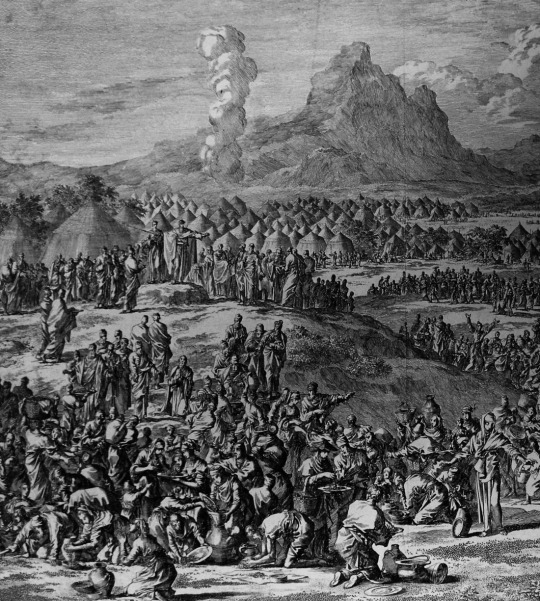
In “Social Quitting,” my latest Locus Magazine column, I advance a theory to explain the precipitous vibe shift in how many of us view the once-dominant social media platforms, Facebook and Twitter, and how it is that we have so quickly gone asking what we can do to get these services out of our lives to where we should go now that we’re all ready to leave them:
https://locusmag.com/2023/01/commentary-cory-doctorow-social-quitting/
The core of the argument revolves around surpluses — that is, the value that exists in the service. For a user, surpluses are things like “being able to converse with your friends” and “being able to plan activities with your friends.” For advertisers, surpluses are things like “being able to target ads based on the extraction and processing of private user data” and “being able to force users to look at ads before they can talk to one another.”
For the platforms, surpluses are things like, “Being able to force advertisers and business customers to monetize their offerings through the platform, blocking rivals like Onlyfans, Patreon, Netflix, Amazon, etc” and things like “Being able to charge more for ads” and “being able to clone your business customers’ products and then switch your users to the in-house version.”
Platforms control most of the surplus-allocating options. They can tune your feed so that it mostly consists of media and text from people you explicitly chose to follow, or so that it consists of ads, sponsored posts, or posts they think will “boost engagement” by sinking you into a dismal clickhole. They can made ads skippable or unskippable. They can block posts with links to rival sites to force their business customers to transact within their platform, so they can skim fat commissions every time money changes hands and so that they can glean market intelligence about which of their business customers’ products they should clone and displace.
But platforms can’t just allocate surpluses will-ye or nill-ye. No one would join a brand-new platform whose sales-pitch was, “No matter who you follow, we’ll show you other stuff; there will be lots of ads that you can’t skip; we will spy on you a lot.” Likewise, no one would sign up to advertise or sell services on a platform whose pitch was “Our ads are really expensive. Any business you transact has to go through us, and we’ll take all your profits in junk fees. This also lets us clone you and put you out of business.”
Instead, platforms have to carefully shift their surpluses around: first they have to lure in users, who will attract business customers, who will generate the fat cash surpluses that can be creamed off for the platforms’ investors. All of this has to be orchestrated to lock in each group, so that they won’t go elsewhere when the service is enshittified as it processes through its life-cycle.
This is where network effects and switching costs come into play. A service has “network effects” if it gets more valuable as users join it. You joined Twitter to talk to the people who were already using it, and then other people joined so they could talk to you.
“Switching costs” are what you have to give up when you leave a service: if a service is siloed — if it blocks interoperability with rivals — then quitting that service means giving up access to the people whom you left behind. This is the single most important difference between ActivityPub-based Fediverse services like Mastodon and the silos like Twitter and Facebook — you can quit a Fediverse server and set up somewhere else, and still maintain your follows and followers:
https://pluralistic.net/2022/12/23/semipermeable-membranes/#free-as-in-puppies
In the absence of interoperability, network effects impose their own switching cost: the “collective action problem” of deciding when to leave and where to go. If you depend on the people you follow and who follow you — for emotional support, for your livelihood, for community — then the extreme difficulty of convincing everyone to leave at the same time and go somewhere else means that you can be enticed into staying on a service that you no longer enjoy. The platforms can shift the surpluses away from you, provided that doing so makes you less miserable than abandoning your friends or fans or customers would. This is the Fiddler On the Roof problem: everyone stays put in the shtetl even though the cossacks ride through on the reg and beat the shit out of them, because they can’t all agree on where to go if they leave:
https://doctorow.medium.com/how-to-leave-dying-social-media-platforms-9fc550fe5abf
So the first stage of the platform lifecycle is luring in users by allocating lots of surplus to them — making the service fun and great and satisfying to use. Few or no ads, little or no overt data-collection, feeds that emphasize the people you want to hear from, not the people willing to pay to reach you.
This continues until the service attains a critical mass: once it becomes impossible to, say, enroll your kid in a little-league baseball team without having a Facebook account, then Facebook can start shifting its surpluses to advertisers and other business-users of the platform, who will pay Facebook to interpose themselves in your use of the platform. You’ll hate it, but you won’t leave. Junior loves little-league.
Facebook can enshittify its user experience because the users are now locked in, holding each other hostage. If Facebook can use the courts and technological countermeasures to block interoperable services, it can increase its users’ switching costs, producing more opportunities for lucrative enshittification without the risk of losing the users that make Facebook valuable to advertisers. That’s why Facebook pioneered so many legal tactics for criminalizing interoperability:
https://www.eff.org/cases/facebook-v-power-ventures
This is the second phase of the toxic platform life-cycle: luring in business customers by shifting surpluses from users to advertisers, sellers, etc. This is the moment when the platforms offer cheap and easy monetization, low transaction fees, few barriers to off-platform monetization, etc. This is when, for example, a news organization can tease an article on its website with an off-platform link, luring users to click through and see the ads it controls.
Because Facebook has locked in its users through mutual hostage-taking, it can pollute their feeds with lots of these posts to news organizations’ sites, bumping down the messages from its users’ friends, and that means that Facebook can selectively tune how much traffic it gives to different kinds of business customers. If Facebook wants to lure in sports sites, it can cram those sites’ posts into millions of users’ feeds and send floods of traffic to sports outlets.
Outlets that don’t participate in Facebook lose out, and so they join Facebook, start shoveling their content into it, hiring SEO Kremlinologists to help them figure out how to please The Algorithm, in hopes of gaining a permanent, durable source of readers (and thus revenue) for their site.
But ironically, once a critical mass of sports sites are on Facebook, Facebook no longer needs to prioritize sports sites in its users’ feeds. Now that the sports sites all believe that a Facebook presence is a competitive necessity, they will hold each other hostage there, egging each other on to put more things on Facebook, even as the traffic dwindles.
Once sports sites have taken each other hostage, Facebook can claw back the surplus it allocated to them and use it to rope in another sector — health sites, casual games, employment seekers, financial advisors, etc etc. Each group is ensnared by a similar dynamic to the one that locks in the users.
But there is a difference between users’ surpluses and business’s surpluses. A user’s surplus is attention, and there is no such thing as an “attention economy.” You can’t use attention to pay for data-centers, or executive bonuses, or to lobby Congress. Attention is not a currency in the same way that cryptos are not currency — it is not a store of value, nor a unit of exchange, nor or a unit of account.
Turning attention into money requires the same tactics as turning crypto into money — you have to lure in people who have real, actual money and convince them to swap it for attention. With crypto, this involved paying Larry David, Matt Damon, Spike Lee and LeBron James to lie about crypto’s future in order to rope in suckers who would swap their perfectly cromulent “fiat” money for unspendable crypto tokens.
With platforms, you need to bring in business customers who get paid in actual cash and convince them to give you that cash in exchange for ethereal, fast-evaporating, inconstant, unmeasurable “attention.” This works like any Ponzi scheme (that is, it works like cryptos): you can use your shareholders’ cash to pay short-term returns to business customers, losing a little money as a convincer that brings in more trade.
That’s what Facebook did when it sent enormous amounts of traffic to a select few news-sites that fell for the pivot to video fraud, in order to convince their competitors to borrow billions of dollars to finance Facebook’s bid to compete with Youtube:
https://doctorow.medium.com/metaverse-means-pivot-to-video-adbe09319038
This convincer strategy is found in every con. If you go to the county fair, you’ll see some poor bastard walking around all day with a giant teddy bear that he “won” by throwing three balls into a peach-basket. The carny who operated that midway game let him win the teddy precisely so that he would walk around all day, advertising the game, which is rigged so that no one else wins the giant teddy-bear:
https://boingboing.net/2006/08/27/rigged-carny-game.html
Social media platforms can allocate giant teddy-bears to business-customers, and it can also withdraw them at will. Careful allocations mean that the platform can rope in a critical mass of business customers and then begin the final phase of its life-cycle: allocating surpluses to its shareholders.
We know what this looks like.
Rigged ad-markets:
https://en.wikipedia.org/wiki/Jedi_Blue
Understaffed content moderation departments:
https://www.dw.com/en/twitters-sacking-of-content-moderators-will-backfire-experts-warn/a-63778330
Knock-off products:
https://techcrunch.com/2021/12/08/twitter-is-the-latest-platform-to-test-a-tiktok-copycat-feature/
Nuking “trust and safety”:
https://www.reuters.com/technology/twitter-dissolves-trust-safety-council-2022-12-13/
Hiding posts that have links to rival services:
https://www.makeuseof.com/content-types-facebook-hides-why/
Or blocking posts that link to rival services:
https://pluralistic.net/2022/12/19/better-failure/#let-my-tweeters-go
Or worse, terminating accounts for linking to rival services:
https://blog.joinmastodon.org/2022/12/twitter-suspends-mastodon-account-prevents-sharing-links/
That is, once a platform has its users locked in, and has its business customers locked in, it can enshittify its service to the point of near uselessness without losing either, allocating all the useful surplus in the business to its shareholders.
But this strategy has a problem: users and business customers don’t like to be locked in! They will constantly try to find ways to de-enshittify your service and/or leave for greener pastures. And being at war with your users and business customers means that your reputation continuously declines, because every time a user or business customer figures out a way to claw back some surplus, you have to visibly, obviously enshittify your service wrestle it back.
Every time a service makes headlines for blocking an ad-blocker, or increasing its transaction fees, or screwing over its users or business customers in some other way, it makes the case that the price you pay for using the service is not worth the value it delivers.
In other words, the platforms try to establish an equilibrium where they only leave business customers and users with the absolute bare minimum needed to keep them on the service, and extract the rest for their shareholders. But this is a very brittle equilibrium, because the prices that platforms impose on their users and business customers can change very quickly, even if the platforms don’t do anything differently.
Users and business customers can revalue the privacy costs, or the risks of staying on the platform based on exogenous factors. Privacy scandals and other ruptures can make the cost you’ve been paying for years seem higher than you realized and no longer worth it.
This problem isn’t unique to social media platforms, either. It’s endemic to end-stage capitalism, where companies can go on for years paying their workers just barely enough to survive (or even less, expecting them to get public assistance and/or a side-hustle), and those workers can tolerate it, and tolerate it, and tolerate it — until one day, they stop.
The Great Resignation, Quiet Quitting, the mass desertions from the gig economy — they all prove the Stein’s Law: “Anything that can’t go on forever will eventually stop.”
Same for long, brittle supply-chains, where all the surplus has been squeezed out: concentrating all the microchip production in China and Taiwan, all the medical saline in Puerto Rico, all the shipping into three cartels… This strategy works well, and can be perfectly tuned with mathematical models that cut right to the joint, and they work and they work.
Until they stop. Until covid. Or war. Or wildfires. Or floods. Or interest rate hikes. Or revolution. All this stuff works great until you wake up and discover that the delicate balance between paying for guard labor and paying for a fair society has tilted, and now there’s a mob building a guillotine outside the gates of your luxury compound.
This is the force underpinning collapse: “slow at first, then all at once.” A steady erosion of the failsafes, flensing all the slack out of the system, extracting all the surpluses until there’s nothing left in the reservoir, no reason to stay.
It’s what caused the near-collapse of Barnes and Noble, and while there are plenty of ways to describe James Daunt’s successful turnaround, the most general characterization is, “He has reallocated the company’s surpluses to workers, readers, writers and publishers”:
https://tedgioia.substack.com/p/what-can-we-learn-from-barnes-and
A system can never truly stabilize. This is why utopias are nonsense: even if you design the most perfect society in which everything works brilliantly, it will still have to cope with war and meteors and pandemics and other factors beyond your control. A system can’t just work well, it has to fail well.
This is why I object so strenuously to people who characterize my 2017 novel Walkaway as a “dystopian novel.” Yes, the protagonists are eking out survival amidst a climate emergency and a failing state, but they aren’t giving up, they’re building something new:
https://locusmag.com/2017/06/bruce-sterling-reviews-cory-doctorow/
“Dystopia” isn’t when things go wrong. Assuming nothing will go wrong doesn’t make you an optimist, it makes you an asshole. A dangerous asshole. Assuming nothing will go wrong is why they didn’t put enough lifeboats on the Titanic. Dystopia isn’t where things go wrong. Dystopia is when things go wrong, and nothing can be done about it.
Anything that can’t go on forever will eventually stop. The social media barons who reeled users and business customers into a mutual hostage-taking were confident that their self-licking ice-cream cone — in which we all continued to energetically produce surpluses for them to harvest, because we couldn’t afford to leave — would last forever.
They were wrong. The important thing about the Fediverse isn’t that it’s noncommercial or decentralized — it’s that its design impedes surplus harvesting. The Fediverse is designed to keep switching costs as low as possible, by enshrining the Right Of Exit into the technical architecture of the system. The ability to leave a service without paying a price is the best defense we have against the scourge of enshittification.
(Thanks to Tim Harford for inspiring this column via an offhand remark in his kitchen a couple months ago!)
[Image ID: The Phillip Medhurst Picture Torah 397. The Israelites collect manna. Exodus cap 16 v 14. Luyken and son.]
#pluralistic#social media#post-twitter#post-facebook#switching costs#network effects#web theory#locus magazine#exodus#decentralization
3K notes
·
View notes
Text
Locus Mag Fundraiser
Darlings! Locus magazine, a brilliant science fiction/fantasy magazine, is a holding a fundraiser for the year.
There are some awesome things you can bid on, including a signed/personalized copy of @neil-gaiman's Coraline!
You can check out all the items and learn a bit about the magazine here:
They do very good work, and there are a lot of really cool things up for grabs.
2 notes
·
View notes
Text
Locus Awards - Vote for Gollancz!

The annual Locus Awards close for voting on 15th April - anyone can vote, for their favourite SFF books, authors, short stories, editors, magazines and fanworks!
You can vote here! Voting is open to anyone, you just have to request a link.
We have a number of nominations, hidden below the cut for easy reference! (Write-ins are also welcome if you have any books you adored but which aren't currently listed)
BEST SCIENCE FICTION NOVEL
The Thousand Earths, Stephen Baxter
Eversion, Alastair Reynolds
The This, Adam Roberts
Beyond the Burn Line, Paul McAuley
The Red Scholar's Wake, Aliette de Bodard
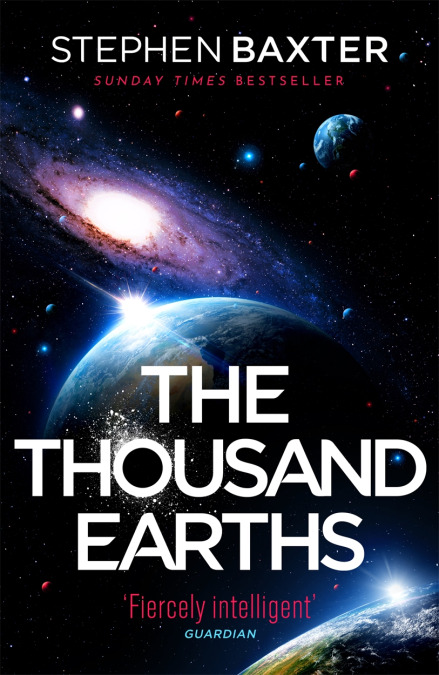

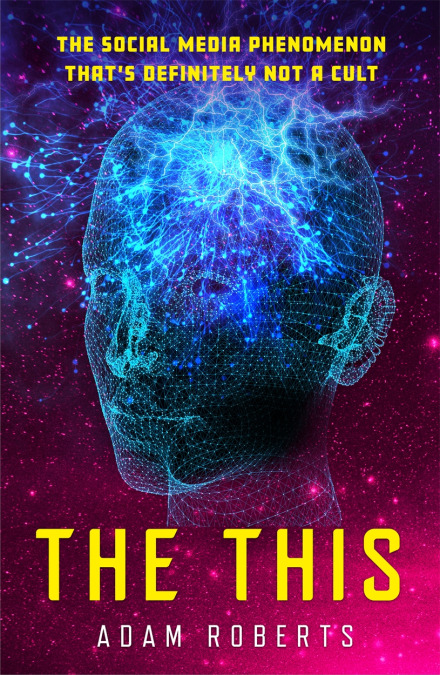


BEST FANTASY NOVEL
Aspects, John M. Ford (published under our Gateway imprint, with introduction by @neil-gaiman)
The Cartographers, Peng Shepherd (published under our sister imprint Orion)
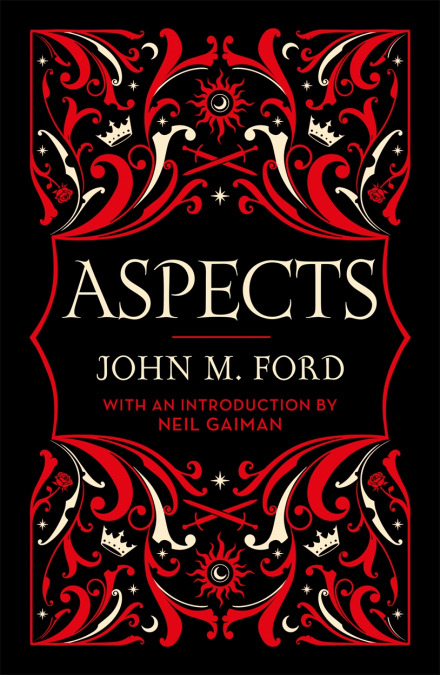

BEST EDITOR
Gillian Redfearn, Gollancz
Maybe we're biased, but Gillian's the best. She's been at Gollancz nearly 20 years, and is the editor for Brandon Sanderson, Joe Abercrombie, Alastair Reynolds, Aliette de Bodard, Joanne Harris, Garth Nix, Elizabeth Bear, Patrick Rothfuss, Miles Cameron, Chris Wooding, Sarah Pinborough, Charlaine Harris... the list goes on! The only UK-based editor to be shortlisted for a Hugo award, she's also genuinely one of the nicest people you will ever meet.
BEST PUBLISHER
Gollancz
We are the oldest dedicated SFF imprint in the world. Founded by Victor Gollancz in 1927, we were the original home of George Orwell, Daphne du Maurier, Kingsley Amis and many others. Victor Gollancz was a proud humanitarian, and that informed his publishing ethos. A newspaper review in 1933 read, "On a yellow Gollancz wrapped you will alway find a black V on G. You may interpret it as either Victor Gollancz or as Very Good, and in either case you'll be right."
In the 1960s, Gollancz became a dedicated SFF and horror imprint, and has continued to publish some of the best works in the genre. Through our SF Gateway list, we have created an archive of books which has rescued and reissued books which had never before been digitised, as well as collecting some of the greatest SFF ever written.
In 2019, we partnered with Ben Aaronovitch to launch the Gollancz and Rivers of London BAME award, looking for British writers from underrepresented backgrounds. The success of this led to it expanding into its current form as The Future Worlds Prize, which now involves several UK SFF publishers.
In 2021, we won the British Book Award for Best Imprint - the first time it had ever been awarded to an SFF imprint.
We have big plans to keep growing in the run up to our centenary, and we can't wait to tell you about them!
#Gollancz Blogging#Locus Awards#Locus Magazine#Voting#SFF#Science Fiction#Fantasy#Horror#Books#Publishing#industry awards
13 notes
·
View notes
Text

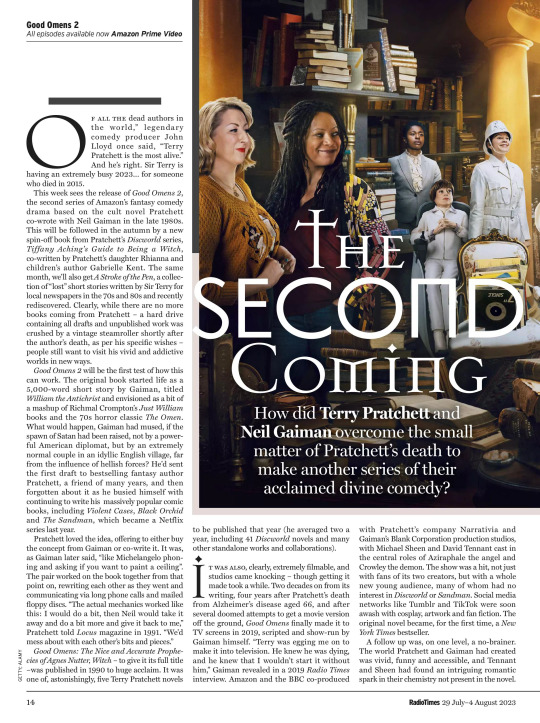

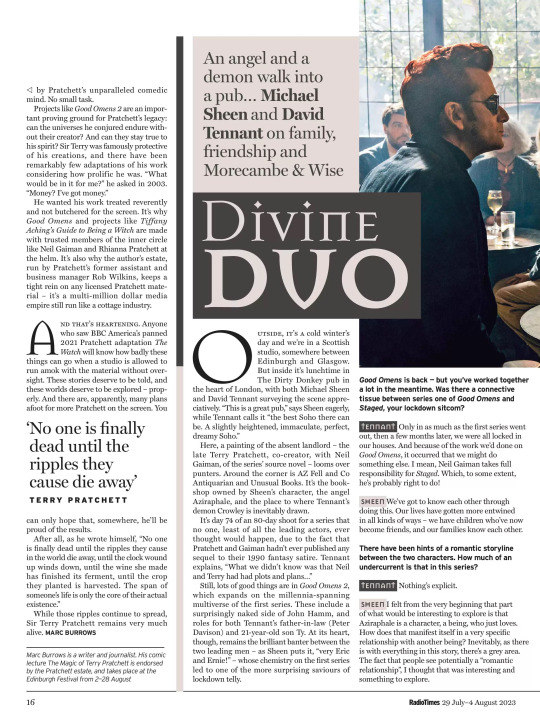
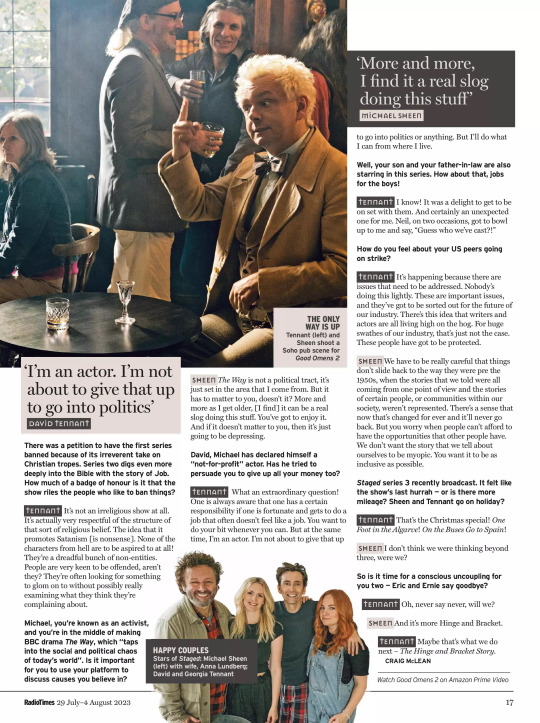
The Radio Times magazine from the 29 July-04 August 2023 :)
THE SECOND COMING
How did Terry Pratchett and Neil gaiman overcome the small matter of Pratchett's death to make another series of their acclaimed divine comedy?
For all the dead authors in the world,” legendary comedy producer John Lloyd once said, “Terry Pratchett is the most alive.” And he’s right. Sir Terry is having an extremely busy 2023… for someone who died in 2015.
This week sees the release of Good Omens 2, the second series of Amazon’s fantasy comedy drama based on the cult novel Pratchett co-wrote with Neil Gaiman in the late 1980s. This will be followed in the autumn by a new spin-off book from Pratchett’s Discworld series, Tiffany Aching’s Guide to Being a Witch, co-written by Pratchett’s daughter Rhianna and children’s author Gabrielle Kent. The same month, we’ll also get A Stroke of the Pen, a collection of “lost” short stories written by Sir Terry for local newspapers in the 70s and 80s and recently rediscovered. Clearly, while there are no more books coming from Pratchett – a hard drive containing all drafts and unpublished work was crushed by a vintage steamroller shortly after the author’s death, as per his specific wishes – people still want to visit his vivid and addictive worlds in new ways.
Good Omens 2 will be the first test of how this can work. The original book started life as a 5,000-word short story by Gaiman, titled William the Antichrist and envisioned as a bit of a mashup of Richmal Crompton’s Just William books and the 70s horror classic The Omen. What would happen, Gaiman had mused, if the spawn of Satan had been raised, not by a powerful American diplomat, but by an extremely normal couple in an idyllic English village, far from the influence of hellish forces? He’d sent the first draft to bestselling fantasy author Pratchett, a friend of many years, and then forgotten about it as he busied himself with continuing to write his massively popular comic books, including Violent Cases, Black Orchid and The Sandman, which became a Netflix series last year.
Pratchett loved the idea, offering to either buy the concept from Gaiman or co-write it. It was, as Gaiman later said, “like Michelangelo phoning and asking if you want to paint a ceiling” The pair worked on the book together from that point on, rewriting each other as they went and communicating via long phone calls and mailed floppy discs. “The actual mechanics worked like this: I would do a bit, then Neil would take it away and do a bit more and give it back to me,” Pratchett told Locus magazine in 1991. “We’d mess about with each other’s bits and pieces.”
Good Omens: The Nice and Accurate Prophecies of Agnes Nutter, Witch – to give it its full title –was published in 1990 to huge acclaim. It was one of, astonishingly, five Terry Pratchett novels to be published that year (he averaged two a year, including 41 Discworld novels and many other standalone works and collaborations).
It was also, clearly, extremely filmable, and studios came knocking — though getting it made took a while. rnvo decades on from its writing, four years after Pratchett's death from Alzheimer's disease aged 66, and after several doomed attempts to get a movie version off the ground, Good Omens finally made it to TV screens in 2019, scripted and show-run by Gaiman himself. "Terry was egging me on to make it into television. He knew he was dying, and he knew that I wouldn't start it without him," Gaiman revealed in a 2019 Radio Times interview. Amazon and the BBC co-produced with Pratchett's company Narrativia and Gaiman's Blank Corporation production studios, with Michael Sheen and David Tennant cast in the central roles of Aziraphale the angel and Crowley the demon. The show was a hit, not just with fans of its two creators, but with a whole new young audience, many of whom had no interest in Discworld or Sandman. Social media networks like Tumblr and TikTok were soon awash with cosplay, artwork and fan fiction. The original novel became, for the first time, a New York Times bestseller.
A follow up was, on one level, a no-brainer. The world Pratchett and Gaiman had created was vivid, funny and accessible, and Tennant and Sheen had found an intriguing romantic spark in their chemistry not present in the novel.
There was, however, a huge problem. There wasn't a second Good Omens book to base it on. But there was the ghost of an idea.
In 1989, after the book had been sold but before it had come out, the two authors had laid on fivin beds in a hotel room at a convention in Seattle and, jet-lagged and unable to sleep, plotted out, in some detail, what would happen in a sequel, provisionally titled 668, The II Neighbour of the Beast.
"It was a good one, too" Gaiman wrote in a 2021 blog. "We fully intended to write it, whenever we next had three or four months free. Only I went to live in America and Terry stayed in the UK, and after Good Omens was published, Sandman became SANDMAN and Discworld became DISCWORLD(TM) and there wasn't a good time."
Back in 1991, Pratchett elaborated, "We even know some of the main characters in it. But there's a huge difference between sitting there chatting away, saying, 'Hey, we could do this, we could do that,' and actually physically getting down and doing it all again." In 2019, Gaiman pillaged some of those ideas for Good Omens series one (for example, its final episode wasn't in the book at all), and had left enough threads dangling to give him an opening for a sequel. This is the well he's returned to for Good Omens 2, co-writing with comic John Finnemore - drafted in, presumably, to plug the gap left Pratchett's unparalleled comedic mind. No small task.
Projects like Good Omens 2 are an important proving ground for Pratchett's legacy: can the universes he conjured endure without their creator? And can they stay true to his spirit? Sir Terry was famously protective of his creations, and there have been remarkably few adaptations of his work considering how prolific he was. "What would be in it for me?" he asked in 2003. "Money? I've got money."
He wanted his work treated reverently and not butchered for the screen. It's why Good Omens and projects like Tiffany Aching's Guide to Being a Witch are made with trusted members of the inner circle like Neil Gaiman and Rhianna Pratchett at the helm. It's also why the author's estate, run by Pratchett's former assistant and business manager Rob Wilkins, keeps a tight rein on any licensed Pratchett material — it's a multi-million dollar media empire still run like a cottage industry.
And that's heartening. Anyone who saw BBC America's panned 2021 Pratchett adaptation The Watch will know how badly these things can go when a studio is allowed to run amok with the material without oversight. These stories deserve to be told, and these worlds deserve to be explored — properly. And there are, apparently, many plans afoot for more Pratchett on the screen. You can only hope that, somewhere, he'll be proud of the results.
After all, as he wrote himself, "No one is finally dead until the ripples they cause in the world die away, until the clock wound up winds down, until the wine she made has finished its ferment, until the crop they planted is harvested. The span of someone's life is only the core of their actual existence."
While those ripples continue to spread, Sir Terry Pratchett remains very much alive. MARC BURROWS
DIVINE DUO
An angel and a demon walk into a pub... Michael Sheen and David Tennant on family, friendship and Morecambe & Wise
Outside it's cold winter's day and we're in a Scottish studio, somewhere between Edinburgh and Glasgow. But inside it's lunchtime in The Dirty Donkey pub in the heart of London, with both Michael Sheen and David Tennant surveying the scene appreciatively. "This is a great pub," says Sheen eagerly, while Tennant calls it "the best Soho there can be. A slightly heightened, immaculate, perfect, dreamy Soho."
Here, a painting of the absent landlord — the late Terry Pratchett, co-creator, with Neil Gaiman, of the series' source novel — looms over punters. Around the corner is AZ Fell and Co Antiquarian and Unusual Books. It's the bookshop owned by Sheen's character, the angel Aziraphale, and the place to where Tennant's demon Crowley is inevitably drawn.
It's day 74 of an 80-day shoot for a series that no one, least of all the leading actors, ever thought would happen, due to the fact that Pratchett and Gaiman hadn't ever published any sequel to their 1990 fantasy satire. Tennant explains, "What we didn't know was that Neil and Terry had had plots and plans..."
Still, lots of good things are in Good Omens 2, which expands on the millennia-spanning multiverse of the first series. These include a surprisingly naked side of John Hamm, and roles for both Tennant's father-in-law (Peter Davison) and 21-year-old son Ty. At its heart, though, remains the brilliant banter between the two leading men — as Sheen puts it, "very Eric and Ernie !" — whose chemistry on the first series led to one of the more surprising saviours of lockdown telly.
Good Omens is back — but you've worked together a lot in the meantime. Was there a connective tissue between series one of Good Omens and Staged, your lockdown sitcom?
David: Only in as much as the first series went out, then a few months later, we were all locked in our houses. And because of the work we'd done on Good Omens, it occurred that we might do something else. I mean, Neil Gaiman takes full responsibility for Staged. Which, to some extent, he's probably right to do!
Michael: We've got to know each other through doing this. Our lives have gotten more entwined in all kinds of ways — we have children who've now become friends, and our families know each other.
There have been hints of a romantic storyline between the two characters. How much of an undercurrent is that in this series.
David: Nothing's explicit.
Michael: I felt from the very beginning that part of what would be interesting to explore is that Aziraphale is a character, a being, who just loves. How does that manifest itself in a very specific relationship with another being? Inevitably, as there is with everything in this story, there's a grey area. The fact that people see potentially a "romantic relationship", I thought that was interesting and something to explore.
There was a petition to have the first series banned because of its irreverent take on Christian tropes. Series two digs even more deeply into the Bible with the story of Job. How much of a badge of honour is it that the show riles the people who like to ban things?
David: It's not an irreligious show at all. It's actually very respectful of the structure of that sort of religious belief. The idea that it promotes Satanism [is nonsense]. None of the characters from hell are to be aspired to at all! They're a dreadful bunch of non-entities. People are very keen to be offended, aren't they? They're often looking for something to glom on to without possibly really examining what they think they're complaining about.
Michael, you're known as an activist, and you're in the middle of Making BBC drama The Way, which "taps into the social and political chaos of today's world". Is it important for you to use your plaform to discuss causes you believe in?
Michael: The Way is not a political tract, it's just set in the area that I come from. But it has to matter to you, doesn't it? More and more as I get older, [I find] it can be a real slog doing this stuff. You've got to enjoy it. And if it doesn't matter to you, then it's just going to be depressing.
David, Michael has declared himself a "not-for-profit" actor. Has he tried to persuade you to give up all your money too?
David: What an extraordinary question! One is always aware that one has a certain responsibility if one is fortunate and gets to do a job that often doesn't feel like a job. You want to do your bit whenever you can. But at the same time, I'm an actor. I'm not about to give that up to go into politics or anything. But I'll do what I can from where I live.
Well, your son and your father-in-law are also starring in this series. How about that, jobs for the boys!
David: I know! It was a delight to get to be on set with them. And certainly an unexpected one for me. Neil, on two occasions, got to bowl up to me and say, "Guess who we've cast?!"
How do you feel about your US peers going on strike?
David: It's happening because there are issues that need to be addressed. Nobody's doing this lightly. These are important issues, and they've got to be sorted out for the future of our industry. There's this idea that writers and actors are all living high on the hog. For huge swathes of our industry, that's just not the case. These people have got to be protected.
Michael: We have to be really careful that things don't slide back to the way they were pre the 1950s, when the stories that we told were all coming from one point of view and the stories of certain people, or communities within our society, weren't represented. There's a sense that now that's changed for ever and it'll never go back. But you worry when people can't afford to have the opportunities that other people have. We don't want the story that we tell about ourselves to be myopic. You want it to be as inclusive as possible
Staged series 3 recently broadcast. It felt like the show's last hurrah — or is there more mileage? Sheen and Tennant go on holiday?
David: That's the Christmas special! One Foot in the Algarve! On the Buses Go to Spain!
Michael: I don't think we were thinking beyond three, were we?
So is it time for a conscious uncoupling for you two — Eric and Ernie say goodbye?
David: Oh, never say never, will we?
Michael: And it's more Hinge and Bracket.
David: Maybe that's what we do next — The Hinge and Bracket Story. CRAIG McLEAN
#good omens#gos2#season 2#radio times#radio times 2023#interview#magazines#neil gaiman#terry pratchett#david tennant#michael sheen#david interview#michael interview#neil interview#terry interview#bts#fun fact#staged#the way#s2 interview#transcripts
884 notes
·
View notes
Text
2023 Eligibility for Awards
Happy New Year everyone! Glad to be with you again in 2024. I hope you had a wonderful holiday season and that the new year brings you health, wealth and prosperity!
I should have done this ages ago, but I was ill over the holiday season, so this is my very late post about my eligibility for speculative fiction awards this year.
I had a banner year in 2023 re my work for 2022, and I was so…
View On WordPress
#2023 eligibility#Awards eligibility#BSFA#caribbean#editing#Hugos#IGNYTE Awards#Locus Awards#Mid-Earth Removals Limited#Nebula Awards#publishing#science fiction#scifi#speculative fiction#Sturgeon Award#Tantie Merle and the Farmhand 4200#The Sunday Morning Transport#Uncanny Magazine#World Fantasy Awards#writing
1 note
·
View note